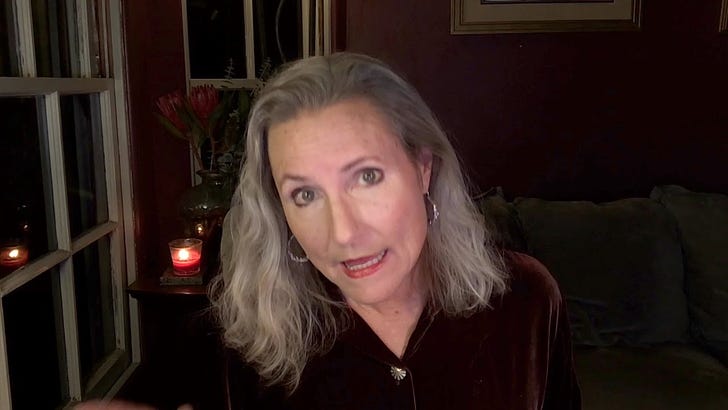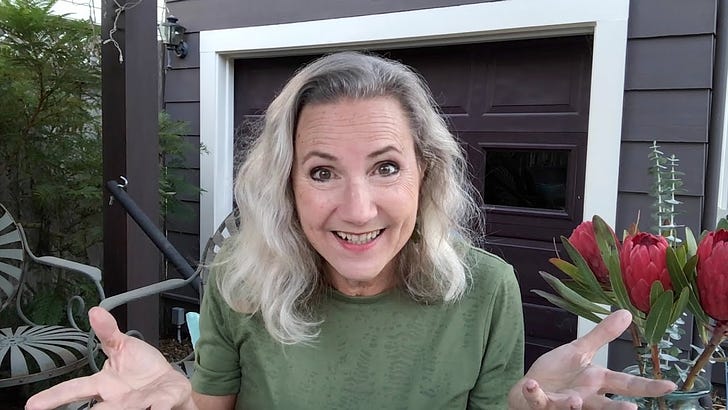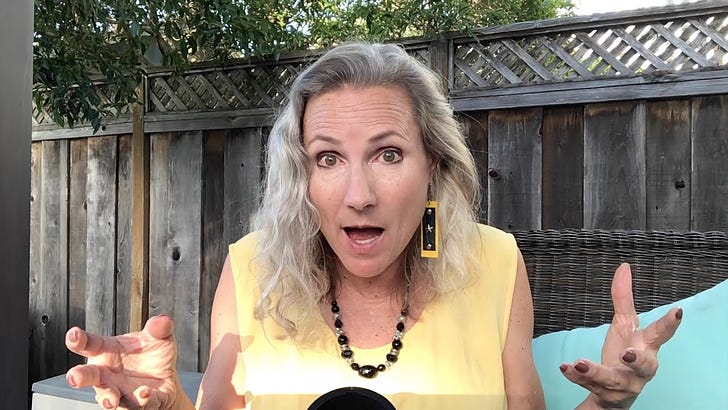This is the introduction I wrote about 20 years ago to my book-in-progress, A House for the Soul in the Land Beyond Faith. There are things that I might change today but I think there’s an importance to alternating between the social and spiritual elements. Enjoy the respite. There is some very heavy material coming and I think these two are related. The more that you can look at these issues without needing anyone to blame, being able to forgive everyone, the deeper that you can get into the absolute ugliness of all the things that are going down. So let’s do this.
Introduction
You hold in your hands, right now, the answer to all your questions. You can find your life’s meaning, and how to express it through your career and relationships. You can discover the personal theology that will make every action you take be for ultimate good. You can unfold the mysteries of life and death. You can walk the path of your life’s purpose confidently, and creativity will emerge in your every endeavor. A powerful role awaits you in justice and social change on a global level, and your heart will hold enough love to break open.
This book has those answers?
Not at all.
You have those answers already.
This book will help you find the questions to get to them.
From the oracles of Delphi to the SAT’s, people have thrown away their right answers in exchange for the wrong questions. Whoever frames the question, wins the debate. This strategy has worked for every system of authority from the school of Socrates to the press corps of the White House. Religions abound with right and wrong answers, but until we come to religion with our own questions, we’re unable to separate them. The question creates the space in our minds for the answer to land. Until then, the meaning of life is a paper airplane zipping aimlessly above our heads.
If we get the question right, the answer is ‘self-evident’—the evidence or proof of the answer’s truth is already within us. It has an inner congruence with what we know, beyond our rational mind. This seems to me like the sympathetic resonance in music. When we press a note on the piano, all the same notes vibrate in recognition, with overtones of the harmonic notes. The truth resonates the same way in our deepest Self, even when we’re pressing all the wrong keys.
The truth is not only internally congruent, but also externally consistent. What science calls ‘proof’ is no more than consistency with logical consequences—a web of inference, drawing a pattern out of mostly thin air. The truth resonates the same way in our deepest Self. It’s not discovered, but remembered. To re-member is to make whole, the opposite of to dismember. But sometimes we have to dismember before we can remember. The questions come apart, the words themselves come apart, and turn into primary questions, which we play with until they reveal their inner harmonies. This harmony is the consistency of truth. Gandhi called his autobiography, The Story of My Experiments in Truth. Each of us has this story to tell, our experiments to record, the experiential evidence of our days weighed against our theories. In the architect’s journal of A House for the Soul, you can write the story of your experiments in truth.
The book is organized into four sections: The Process, The Questions, The Legacy Gardens, and New Skins, New Wine.
The Process begins by mapping out the journey to the land beyond faith. It helps us unload baggage we won’t need there and pack Light. Once we’ve arrived, it’s time to survey the landscape see what’s there – what are our building materials and how can our design welcome the terrain rather than fighting it? The chapter on insight and dialogue gives us the tools to transform our stack of raw material into function and form. It provides fulcrums for shifting perspective. It illustrates the difference between paradox and contradiction. And it stretches our “answers” into theories, to be tested against our own experience. But common ground to share these theories requires some ground rules; productive dialogue requires a purpose. What would the answer mean to us? Does our life depend on it? If our life doesn’t depend on it, we should start with the shelter we need. And so we build.
The Questions are ways of constructing walls that let in breezes, companions, and light, but keep the wolves and hurricane winds at bay. We need a place of calm in the wilderness, or we’ll be forever buffeted by every long-winded argument that comes along. To be open and flexible doesn’t mean foregoing stability and shelter. We’ll anchor the house with a deep foundation and build insulating walls from the straw bales of consistency and logic. Let the predators huff and puff—chaos and confusion can’t get in. But the door is never locked to anyone who wants to rest their weary contradictions and converse.
The Legacy Gardens approach different religious traditions, and those who have built on them, particularly the seeds that have grown in the hard ground of adversity. A theory of liberation theology is that every theology is specific to its context—a theology of privilege sprouts in artificially enriched dirt, a theology of passivity flowers where shade works to its advantage. In every religion, we can look at the branches that have borne the fruits of peace and justice, and can trace that branch all the way back to its scriptural roots.
New Skins, New Wine is about creating a personal theology of synthesis. It leaps from reason to imagination with heady abandon. It also brings suffering into relentless view through daily ritual. Like ‘found art’, theology is found in unexpected places. After years of trying to make these conversations happen, I’ve realized that the essential conversation has been going on all around me, at many levels. I’m only now learning how to hear it.
I once read about the Mosaic God, and was astonished that someone else had the same image for God that I had, until I realized they were talking about the God of Moses. I picture God as the reality underlying a mosaic made up of billions of murky prisms, which is us. Our job in this life is to clarify our facet of glass, and let the color of the light through. Other chips, clearer than I am, wake me up to how muddled I am and give me light, but their truth isn’t the same as mine. White light contains all colors, but expresses it differently in every angle it reflects through. Only when every person on earth reaches clarity will any of us be able to see God. Only then will the kingdom of God, here now, be visible. We can’t give up on anyone as too confused or insignificant. We especially can’t give up on our selves, thinking we have nothing to add. It’s our future to become the light. Nothing else becomes us.
We’re often told that the answers in theology are unattainable: that man isn’t meant to understand God’s purpose. Perhaps instead of ultimate and infallible, we should aim for useful—a work-in-progress theology. A friend of mine says that he doesn't have beliefs; he has an operating system. As soon as we fix one point in our minds, it becomes no longer the whole truth anyway, because it provides the platform for the next extension.
The best way to use the book is as a dialogue. Read my thoughts, and then write your response as the next part of the conversation. If you follow the process of this book, you’ll form your own mind; changing how you think instead of what you think. All that this book is providing is a structure to organize the material you bring to it, after you raze your edifice of assumptions down to the ground.
Your responses, after being written privately, can be used for group discussion. I've never found a forum where the point was to question beliefs. Hopefully, this may be one.
Where does all this analysis lead? It’s often lonely. I make people uncomfortable and the capacity for small talk has escaped me. The juxtaposition of what I know to be true against the world around me makes my heart ache, particularly in the midst of "the good life." I feel raw, vulnerable, exposed, and I cry over statistics.
So why go through it?
Every day with my daughters, I soak them up. I hear music like it’s a love letter I’ve been waiting for. My relationship with death has become more intimate, and I savor the kindness of friends and the warmth and laughter of family. I live for the things I have to give—to love fiercely, to say honestly, to change what I can, and to create some good. But wherever I’m cut off midsentence will be completed by someone else, who’ll also be me, in the way that I’m everyone who’s gone before and is now. I know that. So I’m urgent, but I’m not frantic. I’m realistic, but not hopeless. All of nature, and the entire universe is on the side of justice—the earth itself will rebel, is rebelling. When I’m tired, I listen to the tide in my veins, and feel the indestructible ocean soothing and rocking. I fear suffering and loss, for myself and those I love, and that fear binds me with every person who fears for those they love.
The eyes of the sea-change see new things—not just why and what, but how. How to change the world, to hold more joy and less suffering, is evident everywhere I look. I can’t communicate fast enough to keep up with what I see. Everything I do makes a difference, even, or especially, when sitting still.
You’ll do better than this. And when you do, I’ll be eager to hear about it.
Here is the first in the series, and then the place we are now, between stories:
Religion should be a forum to ask the Big Questions but instead, it's a cult of shared superiority. I define faith as making up your mind in advance of experience. The most important question is my true relationship to you, and my only dogma is that we're equal. Based on that, I explore the possibility that God is real and the world is not.
In a recent talk in Black Mountain, NC, Charles described how we're in the space when the story shifts, the glitch in the matrix of being and relationship. I compare his ideas to A Course in Miracles with the synchronicity that lets us step out of the story for a moment. And I give some thoughts on Clif High and how the Yugas fit with either.






Your writing is excellent, Tereza. I felt your words in my heart. 💗
Of seeing and inner knowing, you wrote:
"If we get the question right, the answer is ‘self-evident’—the evidence or proof of the answer’s truth is already within us. It has an inner congruence with what we know, beyond our rational mind."
----- This is actually a very powerful statement on Truth being found on the inside and Knowledge being beyond mind. Religions could not exist if most people became this self realized.
Three Delphic Maxims: (I mention them here because you brought up Oracles of Delphi)
The Delphic Epsilon was placed at the top of the pediment of the Temple of Apollo, right at its center. At the lower-left corner, there was the inscription:
“Γνώθι Σαυτόν," English Transliteration: Gnothi sauton (or se auton). Meaning: “know thyself” in Greek, while at the lower-right corner, there was the inscription:
“Μηδέν Άγαν”, English transliteration: meden agan. Meaning: “nothing in excess”.
Ἐγγύα πάρα δ' Ἄτα English transliteration: eggua/egguê para d'atê Meaning: “Give a pledge and trouble is at hand.” This last one says it ALL.
If you Know Thyself, then you know Truth; then you should NEVER give a pledge, never offer Allegiance to a Lie. If you know thyself, you must Honor Thyself.
The irony of these profound inscriptions being right there for thousands of years, while later Religions rose and fell; the ancients who left them had been seeking self realization, or at least upholding it as a virtue.